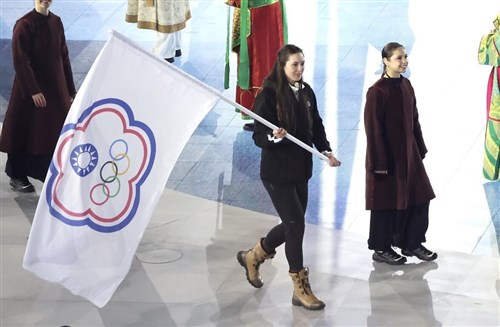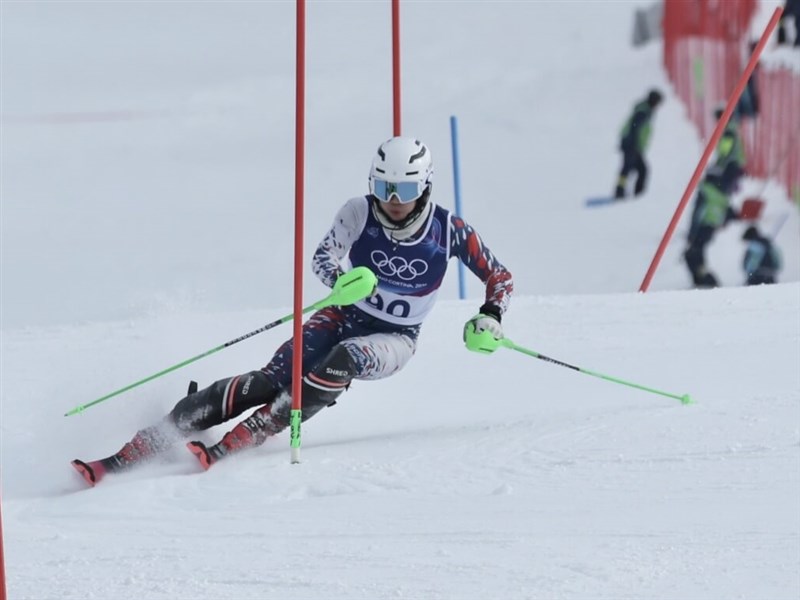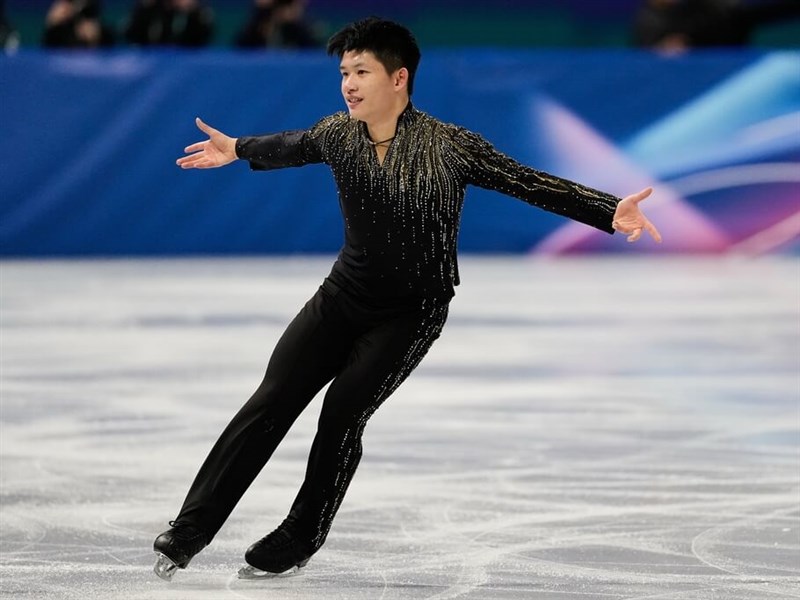OLYMPICS / Taiwan breaks onto Olympic dance stage with Quake's seismic moves
08/11/2024 08:43 PM
Taiwanese break dancer Sun Chen (孫振) may not have finished as high as he might have hoped at the first Olympic breaking event in Paris on Saturday, but just qualifying for the event and competing against the best in the sport was monumental on its own.
(Full text of the story is now in CNA English news archive. To view the full story, you will need to be a subscribed member of the CNA archive. To subscribe, please read here.)
More in OLYMPICS
-
![Taiwan team concludes Winter Olympics with Sophia Velicer as flag bearer]() Taiwan team concludes Winter Olympics with Sophia Velicer as flag bearerTaiwanese athletes took part in the 2026 Winter Olympics closing ceremony in Italy on Sunday, with cross-country skier Sophia Velicer (余睿) serving as the team's flag bearer.02/23/2026 12:12 PM
Taiwan team concludes Winter Olympics with Sophia Velicer as flag bearerTaiwanese athletes took part in the 2026 Winter Olympics closing ceremony in Italy on Sunday, with cross-country skier Sophia Velicer (余睿) serving as the team's flag bearer.02/23/2026 12:12 PM -
![Chang posts Taiwan's first Olympic slalom finish in about 40 years]() Chang posts Taiwan's first Olympic slalom finish in about 40 yearsTroy Samuel Chang (張天將) became the first Taiwanese to complete the Olympic alpine skiing men's slalom in nearly four decades with a 36th-place finish at the Winter Olympics in Italy on Monday.02/17/2026 05:52 PM
Chang posts Taiwan's first Olympic slalom finish in about 40 yearsTroy Samuel Chang (張天將) became the first Taiwanese to complete the Olympic alpine skiing men's slalom in nearly four decades with a 36th-place finish at the Winter Olympics in Italy on Monday.02/17/2026 05:52 PM -
![Figure skater Li makes history for Taiwan at 2026 Olympic Winter Games]() Figure skater Li makes history for Taiwan at 2026 Olympic Winter GamesNineteen-year-old figure skater Li Yu-hsiang (李宇翔) made history for Taiwan at the ongoing Winter Games in Milan, Italy, finishing 23rd in the men's competition on Saturday.02/15/2026 03:52 PM
Figure skater Li makes history for Taiwan at 2026 Olympic Winter GamesNineteen-year-old figure skater Li Yu-hsiang (李宇翔) made history for Taiwan at the ongoing Winter Games in Milan, Italy, finishing 23rd in the men's competition on Saturday.02/15/2026 03:52 PM
Latest
-
Society
Brief showers expected across Taiwan Monday through Wednesday
03/01/2026 01:26 PM -
Society
Taiwan headline news
03/01/2026 01:18 PM -
Society
Six flights at Taoyuan airport canceled after U.S.-Israeli strikes on Iran
03/01/2026 11:08 AM -
Business
Taiwan to raise natural gas prices by 3% on average in March
02/28/2026 09:14 PM -
Politics
Taichung mayor to visit U.S. in mid-March
02/28/2026 08:52 PM


